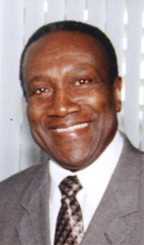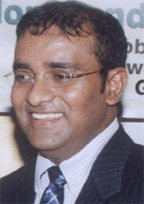President Bharrat Jagdeo and Caricom Secretary-General Edwin Carrington yesterday debunked recent statements by regional leaders that Caricom integration was under strain, stating that in spite of the existing challenges regional integration was still very strong.

They were both speaking at a press conference held at the Caricom Headquarters, on the Caricom Heads of Govern-ment meeting which is scheduled to be held next month in Guyana. This would be the 30th such meeting.
Jagdeo said that in spite of the “unprecedented challenges”, which he opined were largely induced by the recent economic crisis, regional integration “was as strong as ever before”. He stated that in his interactions with fellow Heads, he sensed a deep desire from them to work together to achieve the objectives of the integration movement. This objective was to create a better life for the Caribbean people.
He said that inevitably there would be differences of opinions between countries, but added that the differences of opinion on specific issues should not be seen as the disintegration of the integration movement.
Jagdeo stated that working together in the region definitely had its advantages, and pointed out a few of the cases of Caricom integration working such as the CXC institutions and the Caribbean Court of Justice (CCJ). He said that progress has been made in areas where it could not have been the case if they were fighting as individual countries. He said “we all need to recommit ourselves to strengthening the integration movement”.
Jagdeo, however, pointed out that many times the politicians take the heat for decisions regarding the interpretation of laws and issues that were done at a lower level. He said these were not necessarily the fault of politicians.
Jagdeo also said that some of the policies that various countries would have committed themselves to may have to be delayed due to changing circumstances. However, he said that this would only be done after intense debate and when it has been decided that the delays are warranted.
“Our integration process is not a static one, it is a dynamic one,” Jagdeo said even as he pointed out that there are some key objectives that are unalterable. However, he said that the pathway to getting these objectives may evolve.

Carrington endorsed the statements of President Jagdeo. The Secretary-General said that the role to regional integration was a challenging one. “Integration is not for the faint of heart, it is not a Sunday school process. It is difficult, it has its bumps and it has its smooth freeways.”
Carrington said it was unfortunate that the slightest difficulties are being interpreted as by some as signalling the end of the integration movement.
He also suggested that the changes in leadership in the region have had an impact on the entire process. He said that since 2005, ten of the 15 Caricom Heads of State have been changed. “Change of leadership has implications for the pace of the movement,” he said.
The issue of Caricom integration has received the attention of several regional leaders and authorities. Last month, Barbados officials announced that migration levels into the island were unacceptably high, and that it would expel some “illegal” Caricom migrants. This subsequently prompted St Vincent’s Prime Minister Dr Ralph Gonsalves, to claim that “some political leaders” were “stoking chauvinistic fires which are latent in our Caribbean societies.” He warned that unless the “outpouring of a malignant xenophobia” against Guyanese, Jamaicans, Vincentians, St Lucians and Grenadians was stopped, there could be serious implications for Caricom.
Jamaican Prime Minister Bruce Golding had also questioned elements of the Caricom integration process recently.




